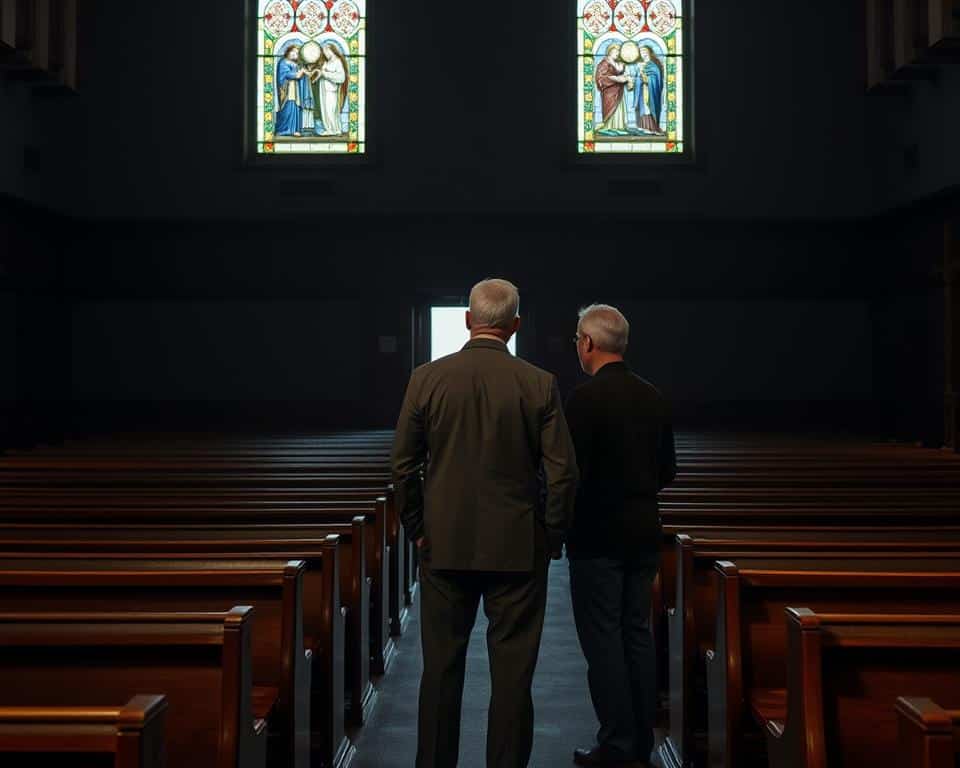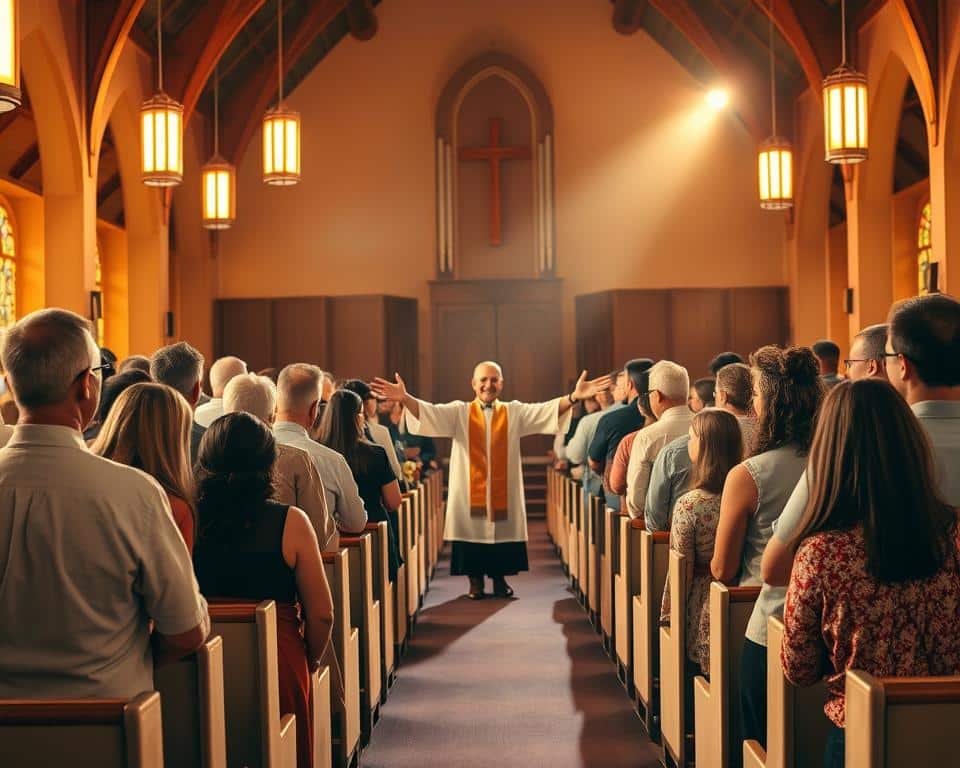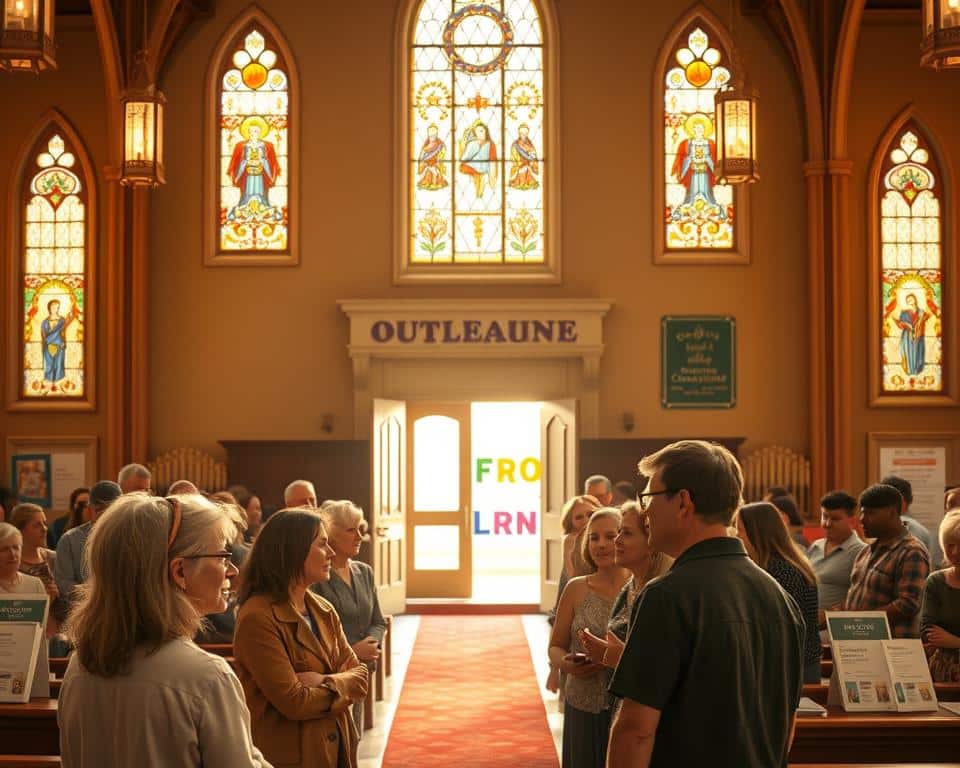Have you ever felt the strain of division in your church? Disunity often creeps in through personal conflicts rather than deep doctrinal disagreements. Studies show 72% of church disputes stem from relational tensions, not theology. Yet, Scripture calls believers to stand together in love.
Ephesians 4:3 urges us to “maintain the unity of the Spirit in the bond of peace.” When we prioritize harmony, we reflect Christ’s love and strengthen our shared faith. A united church isn’t just about agreement—it’s about showing the world God’s grace in action.
Let’s explore how fostering unity transforms communities and honors God’s word.
The Biblical Foundation for Christian Unity
Scripture makes it clear—unity isn’t optional for believers. From Jesus’ prayer in John 17 to Paul’s letters, God’s word repeatedly calls us to stand together. Ephesians 4:3 sums it up:
“Make every effort to keep the unity of the Spirit through the bond of peace.”

Unity as a Command in Scripture
Jesus didn’t ask—He prayed for our oneness in John 17:21. This wasn’t a suggestion but a divine mandate. Paul echoed this in 1 Corinthians 1:10, urging believers to “agree with one another” and avoid quarrels.
Disunity grieves the Spirit. Galatians 5:20 lists “dissensions” as a work of the flesh. Yet, humility flips the script. Philippians 2:2 calls us to be “like-minded,” showing how serving one another bridges gaps.
Examples of Unity in the Early Church
The first believers modeled radical togetherness. Acts 2:44–47 describes them sharing possessions, eating together, and worshiping daily. Their love wasn’t theoretical—it was practical.
- Shared resources: No one claimed ownership; needs were met collectively.
- Collective worship: They prioritized gathering as one body.
- Joyful witness: Their unity drew others to faith.
Today, individualism often fractures what Scripture designed to flourish in harmony. But the early church proves unity isn’t just possible—it’s powerful.
Why Unity in the Church Is Hard to Achieve
Behind every church conflict lies a deeper struggle—human nature. Even with shared faith, divisions creep in through pride, misunderstandings, or competing priorities. A staggering 68% of pastors report unresolved conflicts lasting over six months, proving unity requires intentional effort.

Common Causes of Disunity Among Believers
Scripture warns that sin fractures relationships. Galatians 5:20 calls dissensions “works of the flesh.” Here’s how it plays out:
- Pride: Refusing to apologize or listen fuels resentment.
- Unforgiveness: Holding grudges blocks reconciliation (Colossians 3:13).
- External pressures: Political debates or burnout distract from shared mission.
Even in Philippi, Paul addressed a public rift between Euodia and Syntyche (Philippians 4:2). Their disagreement threatened the church’s witness.
How Sin Disrupts Unity
Sin doesn’t just hurt individuals—it fractures communities. Ephesians 6:12 reminds us our battle is against “spiritual forces,” not others. Satan exploits small disagreements, turning them into chasms.
Yet, every conflict presents opportunities to reflect Christ. Forgiveness and humility rebuild what sin breaks. God’s word gives us the tools—if we’re willing to use them.
The Importance of Christian Unity for Faith Growth
When believers stand together, faith grows deeper and God’s love shines brighter. A unified local church isn’t just a gathering—it’s a family where faith thrives. Studies show congregations with strong bonds retain 40% more members because people stay where they feel valued.
Strengthening the Local Church
Paul’s words in 1 Corinthians 12:26 come alive here:
“If one part suffers, every part suffers with it; if one part is honored, every part rejoices.”
Unified churches:
- Support better: Meals for the sick, childcare for single parents—needs are met faster.
- Grow resilient: A Spanish-speaking church adopted “en la unión está la fuerza” (“strength is in unity”), weathering crises through shared resources.
- Reflect Jesus’ vision: Unlike fractured groups, they live His “one flock” call (John 10:16).
Reflecting God’s Love to the World
Jesus said it plainly: “By this everyone will know you are my disciples, if you love one another” (John 13:35). Unity isn’t inward-focused—it’s our witness to the world.
Seventh-day Adventists show this through holistic outreach. Free health clinics, community meals—these actions speak louder than sermons. When the local church serves as one, the world sees God’s love in action.
Jesus’ Prayer for Unity Among Believers
Jesus’ final prayer before the cross reveals His deepest desire for believers. In John 17, He pleaded three times for our oneness—not just as a ideal, but as proof of God’s love to the world.
John 17: A Model for Oneness
Christ’s prayer unfolds in layers:
- “Holy Father, protect them… so they may be one” (John 17:11). Unity requires divine safeguarding.
- “That all of them may be one… as we are one” (John 17:21). Our bond mirrors the Trinity’s harmony.
- “May they be brought to complete unity to let the world know” (John 17:23). Togetherness is our mission.
Like the Father, Son, and Spirit, we’re called to reflect inseparable love. Seventh-day Adventists embody this through global partnerships—schools, hospitals, and churches working as one body.
Unity as a Witness to Christ’s Mission
Jesus tied our display of unity to His mission:
“Then the world will know that you sent me” (John 17:23).
Today, multiethnic congregations live this out. A Texas church blends Korean, Spanish, and English services—echoing Revelation 7:9’s vision of every nation worshiping together.
When we choose collaboration over conflict, we don’t just honor Jesus Christ—we show the world He’s alive.
Practical Ways to Maintain Unity in Your Church
Conflict resolution isn’t just a skill—it’s a biblical mandate for thriving churches. Studies show congregations with reconciliation teams reduce disputes by 60%. God’s word offers clear ways to foster peace, from Matthew 18’s conflict steps to Paul’s calls for humility.
Practicing Humility and Forgiveness
Jesus modeled humility by washing feet (John 13:14). Follow His example with these steps:
- Active listening: Paraphrase others’ concerns before responding.
- Confession practices: Admit faults openly, as James 5:16 instructs.
- Prayer partnerships: Pair older and younger members to bridge gaps.
The Adventist Church Manual recommends mediation for unresolved issues. Forgiveness isn’t optional—it’s how we reflect Christ (Colossians 3:13).
Encouraging Open Communication
Healthy relationships thrive on transparency. Try these strategies:
- Quarterly unity sermons on Philippians 2:1–4.
- Small groups to discuss conflicts safely.
- Shared service projects (e.g., food drives) to build camaraderie.
When Euodia and Syntyche clashed (Philippians 4:2), Paul urged reconciliation. Likewise, address tensions early—before they divide.
Unity grows where forgiveness and honesty meet. Start small, and watch God multiply your efforts.
Moving Forward Together as the Body of Christ
God designed the church to thrive as one body—diverse yet united. Like Paul’s metaphor in 1 Corinthians 12:12–27, every believer matters. Hands, feet, and eyes work best together. So do we.
Seventh-day Adventists live this through Unity in Mission projects. Food pantries, disaster relief, and multilingual worship services prove the Body of Christ transcends barriers. Start small: host a cross-cultural potluck or testimony night.
Romans 15:5–6 urges us to glorify God with one voice. When we share joy and sorrow (Romans 12:15), we mirror heaven’s unity. Revelation 7:9–10 promises a multitude from every nation worshiping together. Let’s reflect that hope now.
Prayer: “Lord, make me a peacemaker. Help me serve my brothers and strengthen Your church. Amen.”





